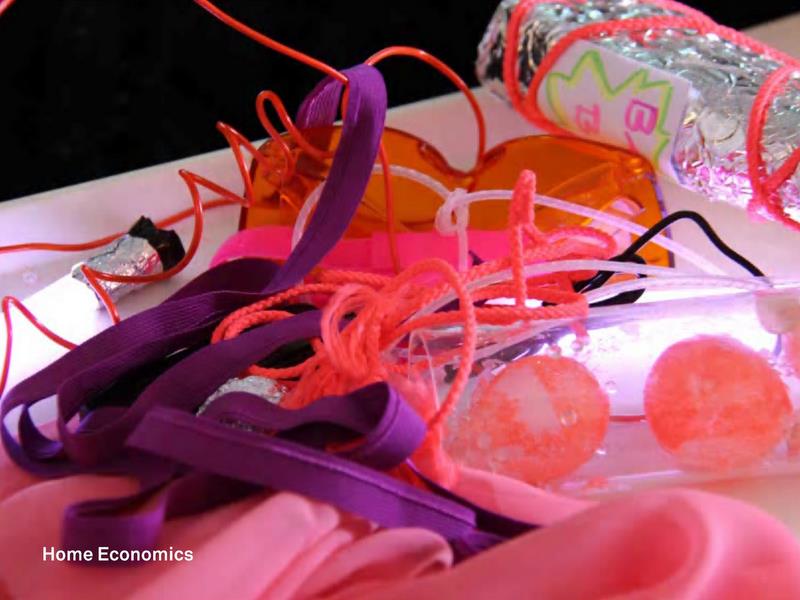Team:Cambridge/Human Practices
From 2010.igem.org
(→Applications) |
|||
| Line 1: | Line 1: | ||
{{:Team:Cambridge/Templates/headerMinimalprototype}} | {{:Team:Cambridge/Templates/headerMinimalprototype}} | ||
{{:Team:Cambridge/Templates/headerbar|colour=#fb5c2b|title=Human Practices}} | {{:Team:Cambridge/Templates/headerbar|colour=#fb5c2b|title=Human Practices}} | ||
| - | + | ||
Human practises encompasses the social ethical and legal considerations of our work. We imagined how our particular project might impact on peoples lives as well as thinking about the wider issues of the way we practise our science and share our findings. | Human practises encompasses the social ethical and legal considerations of our work. We imagined how our particular project might impact on peoples lives as well as thinking about the wider issues of the way we practise our science and share our findings. | ||
==Futures== | ==Futures== | ||
| + | |||
| + | [[Image:Bright_food_pic.jpg|350px|thumb|right|Bioluminescent food of the future?]] | ||
| + | |||
We spent a day early in the project imagining how engineered artificial bioluminescence might be used in the future. This workshop, led by [http://www.daisyginsberg.com/ Daisy Ginsberg] from the Royal College of Arts, made us think about where research into bioluminescence might one day bring us. How would omnipresent bioluminescence affect the way we perceive light in our living environment? Will engineered bioluminescence find its way into consumer products or remain in highly specialised applications and novelty items? Bioluminescent light has a broad spectrum and is emitted volumetrically. How can we use these different qualities of light compared to conventional sources for art, design and architecture? | We spent a day early in the project imagining how engineered artificial bioluminescence might be used in the future. This workshop, led by [http://www.daisyginsberg.com/ Daisy Ginsberg] from the Royal College of Arts, made us think about where research into bioluminescence might one day bring us. How would omnipresent bioluminescence affect the way we perceive light in our living environment? Will engineered bioluminescence find its way into consumer products or remain in highly specialised applications and novelty items? Bioluminescent light has a broad spectrum and is emitted volumetrically. How can we use these different qualities of light compared to conventional sources for art, design and architecture? | ||
Revision as of 20:44, 27 October 2010

Human practises encompasses the social ethical and legal considerations of our work. We imagined how our particular project might impact on peoples lives as well as thinking about the wider issues of the way we practise our science and share our findings.
Futures
We spent a day early in the project imagining how engineered artificial bioluminescence might be used in the future. This workshop, led by [http://www.daisyginsberg.com/ Daisy Ginsberg] from the Royal College of Arts, made us think about where research into bioluminescence might one day bring us. How would omnipresent bioluminescence affect the way we perceive light in our living environment? Will engineered bioluminescence find its way into consumer products or remain in highly specialised applications and novelty items? Bioluminescent light has a broad spectrum and is emitted volumetrically. How can we use these different qualities of light compared to conventional sources for art, design and architecture?
We split the team into three groups, each of which went on to explore their own ideas about the future of bioluminescence:
The first group considered the impact of bacterial lighting at home. If ‘E.colights’ became available for household use how would they be received? What issues would have to be addressed for this to happen? We also considered the markets for other domestic products that might arise as a result and made a mock advert for ‘Bactobang’, an improved antibacterial agent to prevent the escape of bioluminescent synthetic organisms should their container become damaged. We also thought about the possibility of bioluminescence in art and fashion and presented our ideas to the rest of the team.
The second group envisaged ‘Bright Foods’ where the plants and animals that we eat might be engineered to have different colours of bioluminescence that would give an easily interpretable indication of nutritional content. The brightness of the luminescence would fade over time giving an indication of the freshness of the foodstuffs. This could also add an additional dimension to the experience of eating – perhaps restaurants would serve food in the dark so customers could fully appreciate the aesthetics of their luminescent meal. Food standards agencies might even insist that all food conforms to bioluminescent regulations such that foods with high levels of salt or saturated fat glowed particular colours to indicate this to customers. Perceptions might change such that people come to expect their food to glow and view dark food as spoiled and unappetizing. Bioluminescent cocktails could also become a fashionable drink in upmarket bars.
The third group considered how bioluminescence might slowly replace conventional lighting and the issues with intellectual property that this might cause. Initially, artificial bioluminescence could be a novelty – perhaps bioluminescent fish would be a popular pet. As our knowledge of synthetic biology grows, luminescent trees could become a real possibility; the commercial potential in replacing the street lights of the world could lead to strong competition with patents for bioluminescent systems. It could then be difficult to control and police the use of patented genetic systems; if the parts were put into fertile organisms then people might start illegally breeding their own light sources. We also considered containment issues and people’s attitudes towards them. As organisms engineered to be bioluminescent would not pose any considerable threat to public health or the environment, their escape might not be considered a serious issue. The amazement and awe inspired by natural bioluminescence might even lead to the escape of bioluminescent genes being welcomed by the public of the future – particularly one that had grown accustomed to this form of lighting in their homes and cities.
Applications
Our thoughts on using biological light sources led us to consider the concept of sustainability. Would our lighting be more sustainable and environmentally friendly than conventional devices? and where might it be useful? Bioluminescence is 'cold light' and much more efficient than conventional lighting. Despite this we find it unlikely that bioluminescence would completely replace current lighting and instead considered it's applications in remote off grid areas or complementing existing sources. Our biological systems would require only a chemical fuel source so would not be dependant on the electrical grid. Perhaps this fuel could come from waste products be that human waste or food waste. If a photosynthetic organism such as a suitable alga species was used then additional energy could be harnessed from sunlight. We might imagine a system where a bioreactor in the roof of a house - supplied with leftover foodstuffs - could pipe glowing algae through the rooms of the house during the night and across the roof during the day. We also considered the exciting prospect of bioluminescent trees lighting our roads and produced a 3D model of what this might look like as well as researching the feasibility of such a project.
We also considered the prospect of using our light production in biosensors after a talk from [http://practicalaction.org/blog/author/djg/ David Grimshaw] of Practical Action. Dr. Grimshaw has worked with the issues of contamination of water sources with arsenic in Bangladesh and mercury in Nepal. He informed us that local people wished for a portable device that was easy to use such that testing of wells could be performed by members of the community and a quantitative digital readout would be preferable. Light production as an output of a biological circuit could be detected by a sensor in an electrical system to give a digital readout. Our biobricks could bridge the gap between biological and electrical circuits. Further investigation into the practicalities of this led to the development of the E.glometer
Knowledge Recycling
Sustainability considerations in end design also led us to consider the sustainability of the way we conduct our research. The theme of recycling echoed strongly throughout or project due to the desire to recycle luciferin substrate in project firefly and more generally with considerations of minimising the environmental impact of our work. Recycling of physical materials is vital for sustainability but do we treat our intellectual property in the same way? Do we give the ideas we have the maximum chance of being taken forward and used to promote further thought rather than reaching intellectual dead ends?
 "
"

